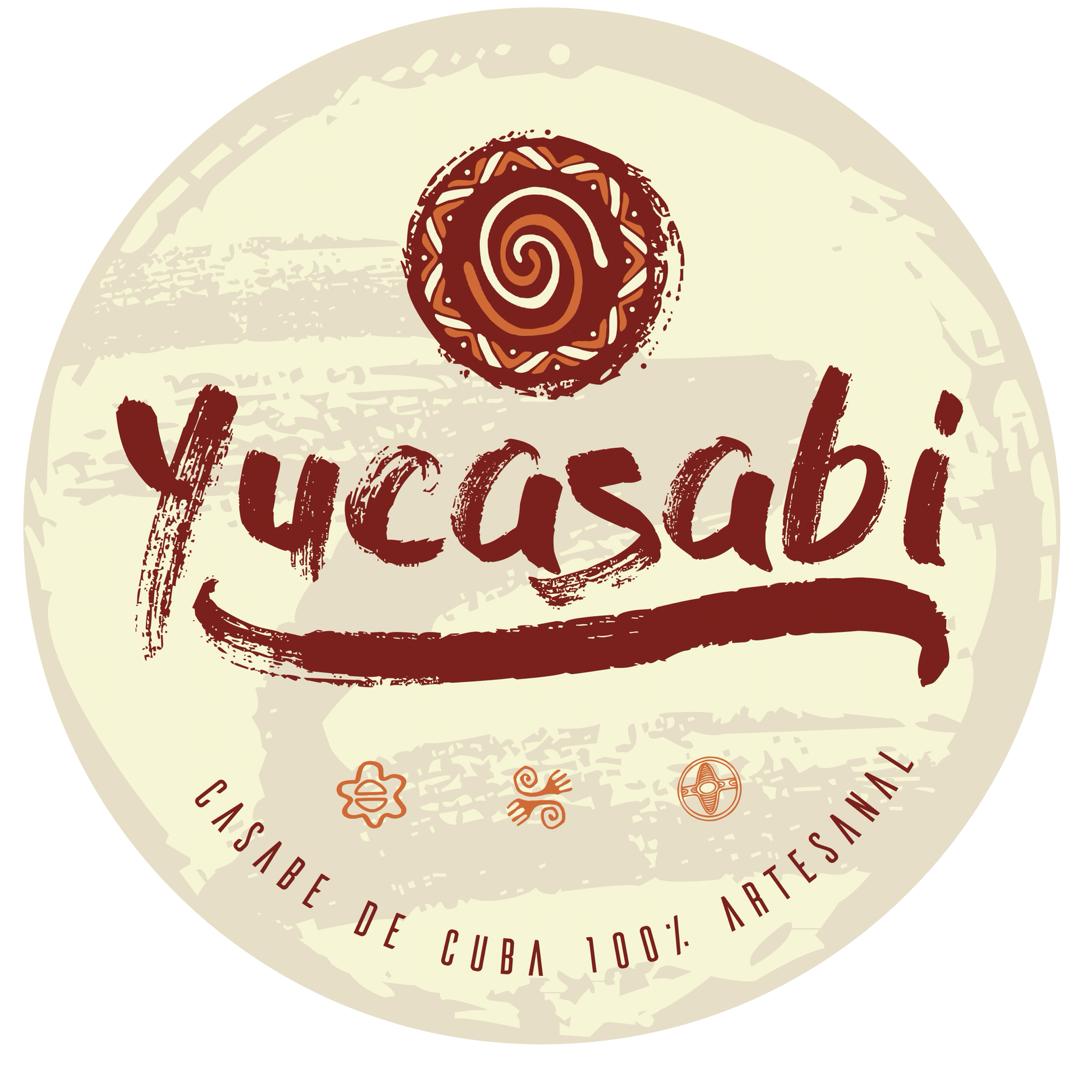I would dare to say that Yucasabi constitutes a whole philosophy of life, although what most people see is just the only restaurant in Cuba specializing in cassava. That is a conclusion that can be reached by anyone who talks for a while with Yudisley Cruz Valdés, co-founder, partner and the most public face of this MSME that she created two years ago together with her husband Herminio López Díaz and her friend José Núñez Labañino.
Her venture already includes two establishments, Yucasabi in Old Havana and another in the Playa municipality; although both sell the so-called cassava bread, the restaurant located in the historic center is the one that carries the cultural load behind putting pre-Columbian bread on the table.
This Cuban business is currently experiencing its greatest moment of impact so far. At the end of December, cassava was declared Intangible Cultural Heritage by UNESCO and Yucasabi was one of the Cuban participants in the process. A week ago this business was recognized by OnCubaNews and the Embassy of the United Kingdom in Cuba with the award for Best Entrepreneur of the Year | 2024.
How did the idea of having a business dedicated to cassava come about?
We first had another restaurant in Old Havana, where I met one of the cassava producers, a family from eastern Cuba who lives in Havana, and there we began to present it in our dishes. Then the pandemic came, that place closed, and during that time I started to read a little more and investigate and I became passionate about all the history it has.
I did not understand how it is possible that a dish and a tradition of so many years, of so many centuries, with so many families that have maintained it, has no recognition today.
It cannot be that something with so many years, that began with the indigenous people, then the black slaves came and the indigenous people joined the runaway slaves and that was the cultural step; from all that mixture the Cubans began, there it was also maintained with the farmers. The wars of independence came and it reaches up to the present. When one sees its historical journey, one cannot believe that nobody knows it, that it has been forgotten, that it is not in any Cuban cuisine dish.
In how many generations and in how many historical moments was it present, with that historical transition and the representation it has for the historical cultural identity from many points of view.
But also, the value it had to feed, because it is what it is: food. That’s why we thought that it was perfect to carry on all this history, but there has to be a place where there is always some.
That’s how the idea of creating a business where cassava was the center, the driving force, began to emerge. A Cuban cuisine restaurant where cassava was the king of the house.
Where did the name Yucasabi come from?
For that process we were assisted by the Archaeology Office of the City of Havana’s Historian Office.
Yucasabi was a word that was born from the union of yucca and casabi, which was one of the many ways cassava was called.
But it’s not just the name, we also have the decorative features of our establishment. The lamps we have in the dining room are made of clay and their fretwork is inspired by the decorative motifs of the indigenous peoples.
Here we serve in clay and wood and we made a relief mural that reflected our vision of an indigenous village where cassava was made. There you can see that there are mostly women working because the men went to do the hard work on the land, but it was the women who made it, with the children and the elderly who stayed in the village.
Beyond the cultural aspect, from a culinary point of view, what is it about cassava that made you fall in love with it?
We are talking about a dish that has only one ingredient, it is only yucca. It does not have fat in its composition, we do not add salt, so that it goes with everything, and so you can eat it with a salty food as well as with a sweet food.
Since it is gluten-free, we have taken that into account as well, and in this restaurant we do not consume wheat flour, so that people who are allergic to gluten, or who want to have a slightly different diet, or who are vegetarian or vegan, can come to eat at Yucasabi with complete safety.
How is a cassava-based menu made?
All our dishes are made with cassava and we have been very careful when choosing them, looking for another experience, and so that people come to eat at Yucasabi, looking for new flavors and combinations. They see it, try it and know that it is delicious, that it goes with everything, and they can eat it every day, with whatever they want.
Although it is the fundamental ingredient in starters, it is a permanent accompaniment in main dishes and desserts.
We have breakfast offers that are served with crunchy cassava; we also make special lasagnas, based on yucca cream. Our croquettes are made from yucca, and we coat them with cassava powder; the house fritters are also made with yucca to change the flavor, because the truth is that we are looking for that, a different culinary experience.
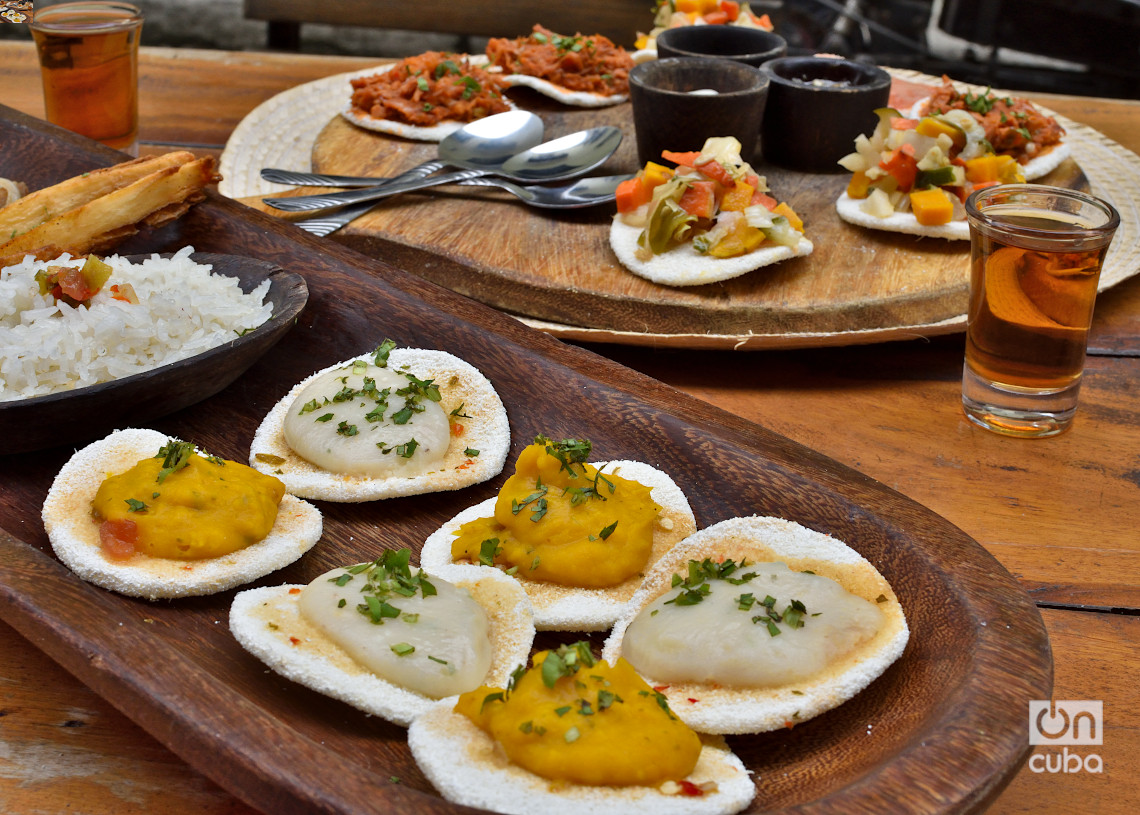
Cassava is not easy to make, it is not a dish that can be made at the time of serving, how do you guarantee that it never goes missing?
That is the part in which producers and promoters enter our project.
For more than four years we have been associated with a family producer from eastern Cuba, based on the outskirts of Havana, which has also been growing, and there are already other generations within the family itself.
With them we guarantee that we always have the product, at Yucasabi we have cassava 365 days a year.
What other actions do you take to promote the knowledge and consumption of cassava?
We also sell cassava to other private and state restaurants, something that includes passing on our knowledge from the gastronomic point of view around cassava bread. Some of these places have a dish with cassava, or in the bread basket, or maybe in the starters.
We have a signed agreement with the Municipal Education Department of Old Havana, and we have worked with children from primary and secondary school, and one of the first nice things that happened to us with this experience was that when the first group of primary school children came, one of them who saw it, said: “Ah, but does that exist?” And that happened to all of us, because they teach it in school when they start to come across the history of Cuba, they talked to us at some point, but it didn’t exist.
How was your participation in the Cuban part for the declaration of cassava as Intangible Cultural Heritage of UNESCO?
We were contributing cassava for the different activities that were done throughout this process and we made some contributions to the file.
Putting together a multinational file is not easy, and after that is achieved, there is a period of time for UNESCO to review, verify and convince itself that all of this is true.
Everyone who works with cassava in some way is a bearer and we feel like bearers of that tradition and we were participating in that way. We took cassava to the Cuban mission in France, to the visit that took place in Paraguay, and we are always supporting all the cassava makers.
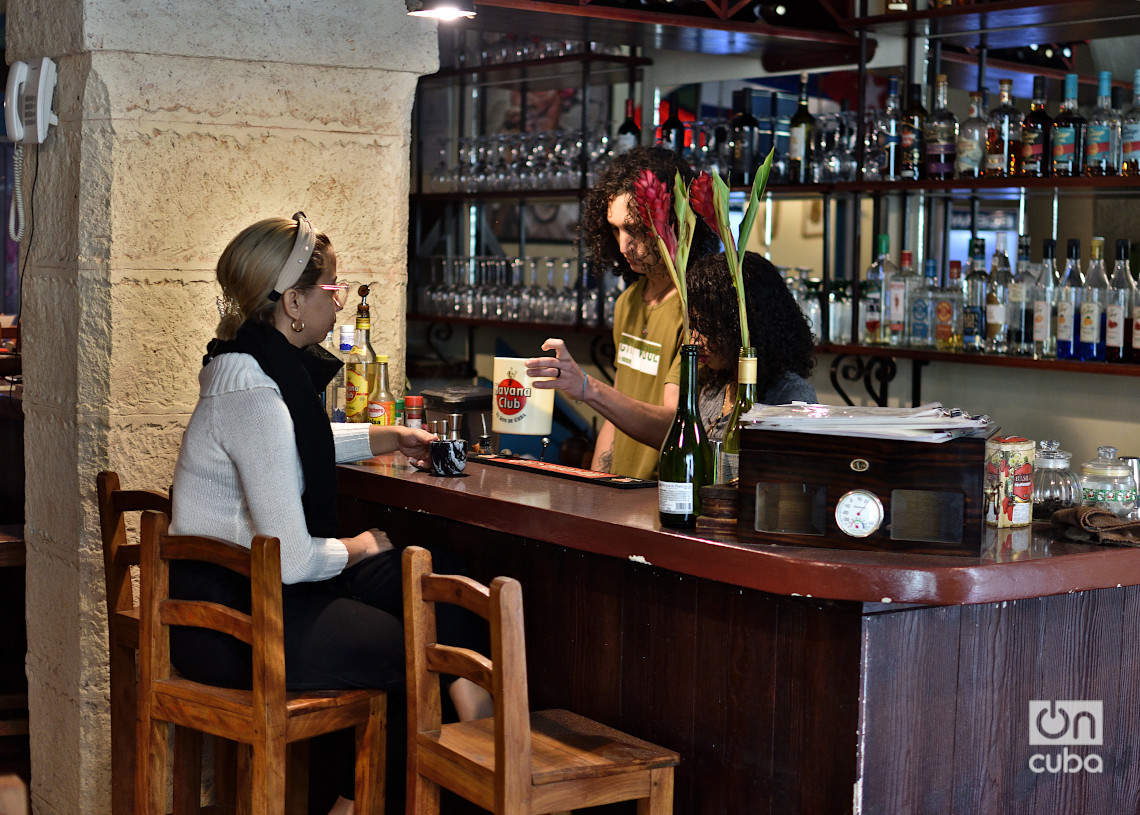
How do you feel about having achieved this declaration?
We are very happy, because we really wanted cassava to have this world recognition, it is something that many generations have been defending and we may be like the most modern, youngest face, we are in Havana, but there have really been many generations of Cubans who have defended it.
Cuban cuisine was declared National Heritage and within it, cassava, now having this world recognition, is the reason for tremendous celebrations for all lovers, who as I told you, are producing families, chefs, journalists, historians, professors linked to food sciences.
There really is a world of things that have been done with cassava throughout the country from all these specialties.
There is a very big family that has been defending cassava for many years, people who are unfortunately no longer alive, others who may not reside in the country, but there are many of us who have felt very happy with this declaration.
Yucasabi is run by three people, and none of them have culinary training, how have their professions allowed them to understand that cassava has value?
José Núñez Labañino has a background in economics, he is a person with an important professional career in the city and has also worked in different enterprises.
Herminio López has a diplomatic background, with a lot of experience in public work; and I have a degree in Economics, with a master’s degree in tourism management and with a bit of diplomatic work.
The three of us have come together and I really believe that yes, all the professional development that we have had individually has given us the ability to give it the value that it has. First as what it is: a cultural tradition, something that identifies us, that has to represent us. When we talk about Cuban cuisine we have to talk about cassava, because it is one of the oldest dishes we have.
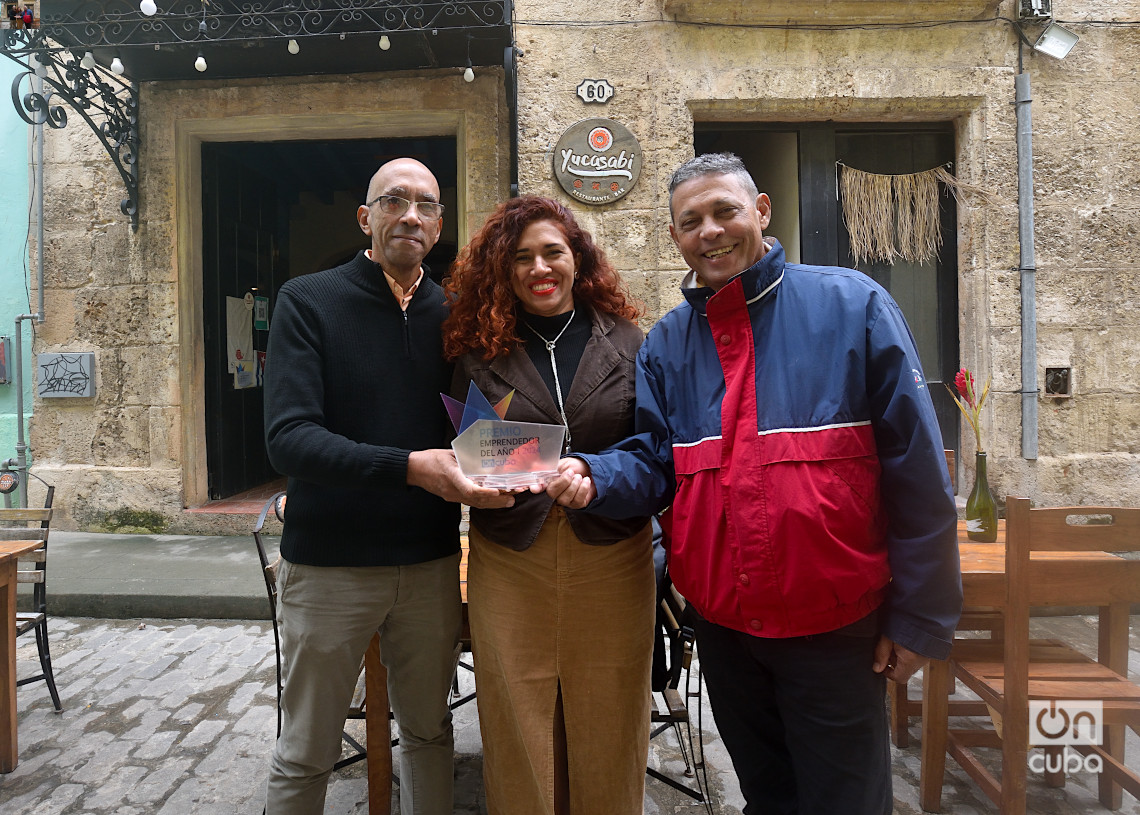
Does the fact that Yucasabi is located in Old Havana of interest that this work of dissemination is mainly aimed at foreign audiences?
Yes, that was also the intention, but for us all the clients are important. I tell the boys that there is no difference between a passport and an ID card. Here, it is the people who are important because what we want is for everyone to leave with the experience of trying cassava and liking it, of course.
Many people have come who didn’t know and I really have three fingers on one hand to count those who came saying they didn’t know anthing about cassava, that they did not like it, and who left here without changing their mind.
What we have achieved so far makes us feel satisfied. We like what we do, we enjoy it, we are going to continue doing it and what we want is to invite all those who have not known or have not yet tried cassava to give themselves the opportunity.
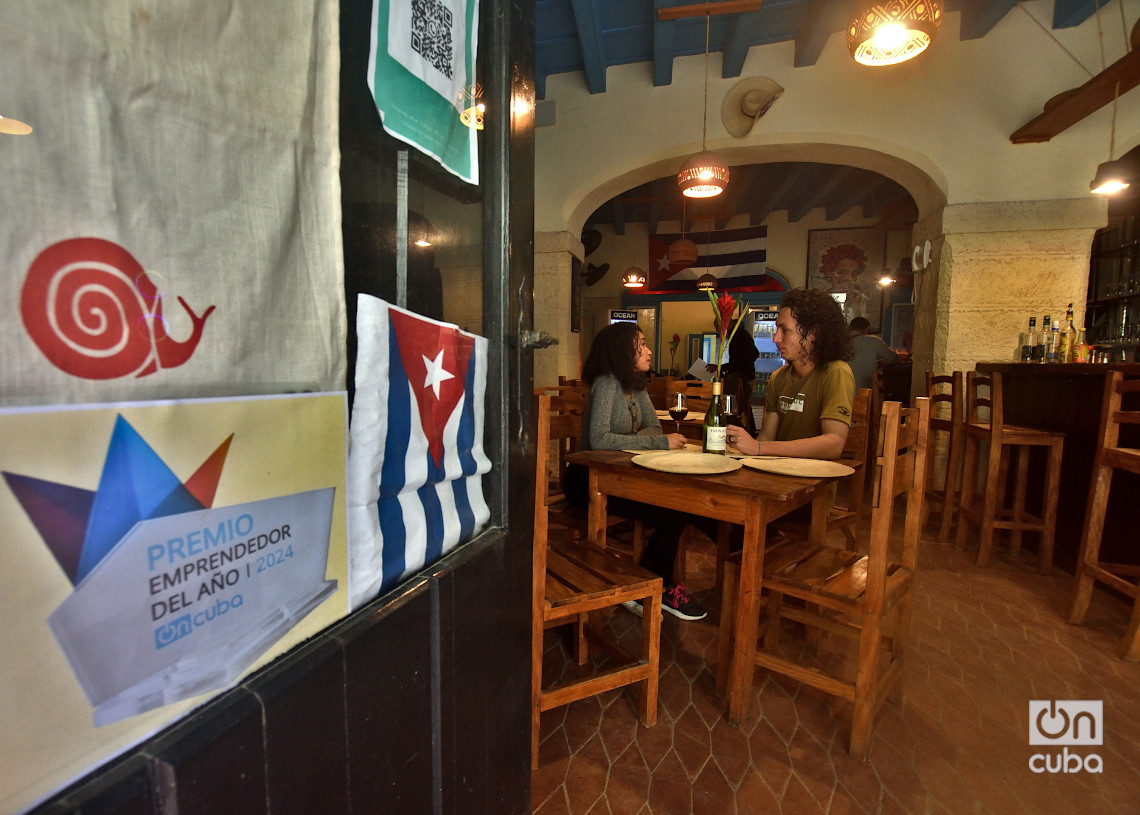
Although it is becoming one of the successful businesses in Havana, Yucasabi is still a young business, and it does not escape the difficulties of starting up in Cuba. What have been the greatest difficulties for you and how have you overcome them?
Starting a business is very difficult, it is born with that idea and that passion, but making it happen takes time, a lot of work, sleepless nights and effort. For an entrepreneur there are resources that are very difficult to manage, there are the financial resources, there are material resources, but I think that the most important is the human resource and it is the most difficult to manage.
People move, they are constantly changing jobs. In these spaces it is normal for people to move a lot, even within the restaurant positions, so sometimes achieving a work team is difficult and painful, both things.
We have only been here for two years, that seems like a lot, but it is still little. We always try to do something different, to create a different dish, and when the workers change that leads us to a new learning, to teach in a different way.
Despite that, we have happily managed to create a family, some have moved, but we still have founders and we are all committed and in love with what we do.
We try to always keep the stimulus, to bring new ideas of managing, of doing, of selling, of talking, of communicating, of keeping them motivated with what we are doing. Everyone feels bad one day, I do too, and although I’m the locomotive, sometimes I also need to regenerate myself.
This is between all of us, and we try to have a very close communication, to always keep our spirits up and to be able to continue walking in this endeavor that we love and have with cassava and that culture.





